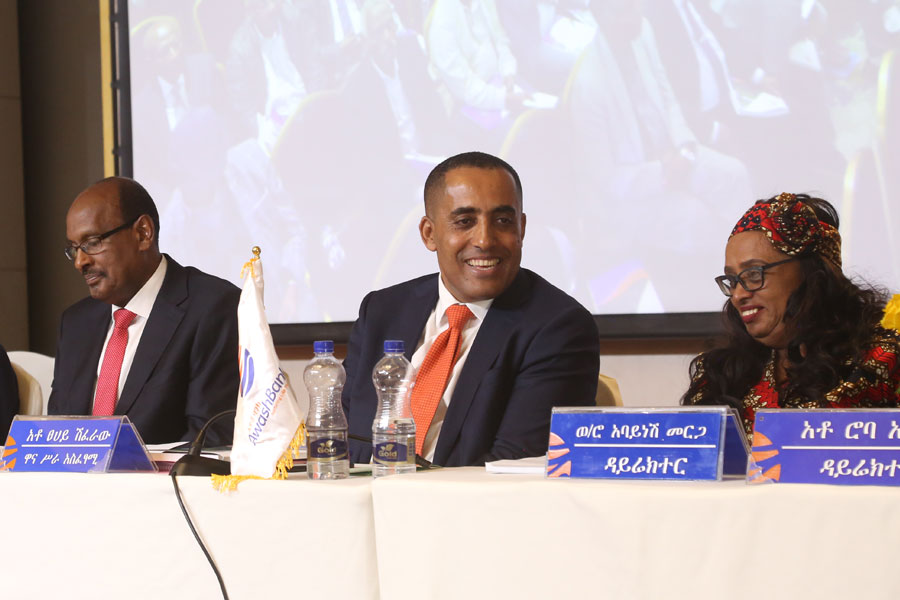
Radar | Sep 10,2023
Mar 25 , 2023
By Andrew Sheng , Xiao Geng
The world is in the midst of a global permacrisis. As interrelated shocks – the war in Ukraine, the fallout of the COVID-19 pandemic, the escalating US-China rivalry, climate change, and a looming financial meltdown – threaten to engulf the world's great powers, it is time for emerging-market and developing economies to revisit and revise their development strategies.
After the end of World War II, development economists emphasized decolonization, alternative growth models, and strengthening state mechanisms to rein in markets. But over the past four decades, the neoliberal trade framework – underpinned by the Bretton Woods institutions and the Washington Consensus – did away with many of these state capacities in favour of market-oriented growth with minimal government intervention.
The Asian financial crisis of 1997-98 shook confidence in the Washington Consensus, and the 2008 global financial crisis led some development economists to abandon it altogether. At the same time, economists have begun to look beyond GDP growth, broadening the concept of development goals to include gender equality, environmental sustainability, happiness, and diversity.
For a while at least, the spectacular rise of the BRICS economies – Brazil, Russia, India, China, and South Africa – seemed to offer a compelling alternative to the neoliberal development framework. But conflicting ideologies and approaches have left economists unable to agree on a new paradigm.
To address diverse goals, development economics has become increasingly multi-disciplinary. By incorporating insights from various other social sciences, as well as from ecology and other life sciences, development scholars have been trying to devise alternative, more holistic economic models. But reimagining the economy, as Harvard economists Dani Rodrik and Gordon Hanson have argued, also requires shedding outdated assumptions.
There is no one-size-fits-all development model. Economies are complex systems shaped by a dizzying array of interactions between individuals, communities, societies, states, and global structures. These constantly shifting local and international contexts generate unpredictable outcomes that simple, seemingly elegant theories cannot easily explain.
Emerging and developing economies must adapt to a fast-changing world where achieving a universal development agenda is no longer possible. Devising holistic and practical development strategies suitable for this new reality requires systems thinking and a new philosophical framework.
Consider the complex challenges facing the world's 38 small island developing states, whose share of the world's population is under 0.2pc. Individually, these countries, which account for 0.1pc of global GDP, look minuscule in terms of land, economic output, and population size. But including their exclusive maritime economic zones, they collectively occupy 21 million square kilometers. It would be the world's second-largest, behind Russia, if they were a single country.
The fact that they account for one-fifth of the United Nations members and 8.7pc of the world's combined exclusive economic zones and land area gives small island states geopolitical clout, with larger countries regularly courting their UN votes and maritime access. The growing tensions between the United States and China over the strategically important Solomon Islands are a case in point.
But small island states are highly vulnerable to external shocks. The pandemic crushed the tourism industry, which accounts for most of these countries' exports, causing their combined GDP to contract by 6.9pc in 2020, compared to the average decline of 4.8pc in other developing countries. They are also increasingly threatened by rising sea levels. For example, 77pc of the Maldives' land area is expected to be underwater by the end of the century.
The scarcity of usable land, small populations, and limited capital constrain small island states" development prospects. With services accounting for half their GDP, no significant manufacturing or agricultural activity, and few oil and gas resources, their economies are extremely vulnerable to rising consumer goods and energy prices. Digital services could be one area where small island states could have a comparative advantage. But first, they must invest in high-quality technology infrastructure and create a workforce skilled in information and communications technologies.
Mobile broadband subscriptions rose from one-quarter of the population in 2014 to almost half by 2018, but lag behind the world average by 22 percentage points. If these countries wish to develop new sustainable income sources, governments must devote considerable resources to upgrading their education systems, particularly their science, math, and creative arts curricula.
A bottom-up approach to sustainable development, underpinned by community-level consensus and powered by nonprofit social enterprises, is preferable to top-down strategies. Mainstream development economics' focus on creating economies of scale has fostered state and market power concentrations, generated social and environmental injustices, and helped fuel the current populist backlash. Without reaching a broad social consensus and empowering grassroots communities, polarization will intensify further, undermining developing countries' ability to achieve the UN Sustainable Development Golas (SDGs).
By embracing technology and modern management techniques, small island states could harness the power of communities to drive sustainable socioeconomic development. Shifting from a top-down design to a bottom-up approach would enable small communities to empower themselves. This would ultimately strengthen developing countries' national economies and the global economy as well.
Reimagining development economics is not about socialism versus capitalism. Rather, it is about thinking systemically and acting locally, enabling economies and communities to define, experiment, and achieve their aspirations while benefiting from relevant global knowledge.
PUBLISHED ON
Mar 25,2023 [ VOL
23 , NO
1195]

Radar | Apr 15,2023

Fortune News | Aug 16,2020

Fortune News | Mar 05,2022

Featured | Oct 06,2024

News Analysis | Dec 09,2023

My Opinion | 131974 Views | Aug 14,2021

My Opinion | 128363 Views | Aug 21,2021

My Opinion | 126301 Views | Sep 10,2021

My Opinion | 123917 Views | Aug 07,2021

Dec 22 , 2024 . By TIZITA SHEWAFERAW
Charged with transforming colossal state-owned enterprises into modern and competitiv...

Aug 18 , 2024 . By AKSAH ITALO
Although predictable Yonas Zerihun's job in the ride-hailing service is not immune to...

Jul 28 , 2024 . By TIZITA SHEWAFERAW
Unhabitual, perhaps too many, Samuel Gebreyohannes, 38, used to occasionally enjoy a couple of beers at breakfast. However, he recently swit...

Jul 13 , 2024 . By AKSAH ITALO
Investors who rely on tractors, trucks, and field vehicles for commuting, transporting commodities, and f...

Jul 5 , 2025
Six years ago, Ethiopia was the darling of international liberal commentators. A year...

Jun 28 , 2025
Meseret Damtie, the assertive auditor general, has never been shy about naming names...

Jun 21 , 2025
A well-worn adage says, “Budget is not destiny, but it is direction.” Examining t...

Jun 14 , 2025
Yet again, the Horn of Africa is bracing for trouble. A region already frayed by wars...

Jul 6 , 2025 . By BEZAWIT HULUAGER
The federal legislature gave Prime Minister Abiy Ahmed (PhD) what he wanted: a 1.9 tr...

Jul 6 , 2025 . By YITBAREK GETACHEW
In a city rising skyward at breakneck speed, a reckoning has arrived. Authorities in...

Jul 6 , 2025 . By NAHOM AYELE
A landmark directive from the Ministry of Finance signals a paradigm shift in the cou...

Jul 6 , 2025 . By NAHOM AYELE
Awash Bank has announced plans to establish a dedicated investment banking subsidiary...